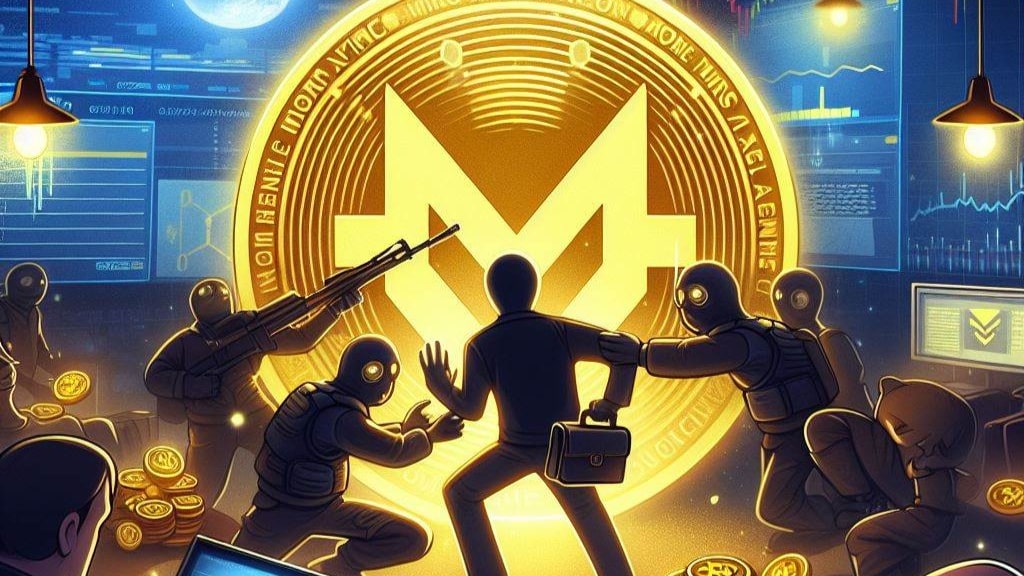
In a move that reverberated across the cryptocurrency landscape, Binance, one of the largest crypto exchanges globally, has announced the delisting of Monero (XMR), a cryptocurrency known for its privacy features. This decision has ignited debates and concerns within the crypto community regarding privacy, regulatory compliance, and the future of digital currencies.
The primary reason behind Binance’s delisting of Monero stems from the conflict between Monero’s privacy-focused features and Binance’s stringent compliance requirements. Monero’s utilization of stealth addresses for transaction privacy clashes with Binance’s need for transparency in tracking deposits from publicly visible addresses. This misalignment prompted Binance to remove Monero from its list of supported cryptocurrencies, leading to a significant downturn in both the price and trading volume of XMR.
Binance’s Response and Customer Concerns
In the aftermath of the delisting controversy, the Binance Customer Support team has been actively engaging with users to address their concerns. However, criticism has arisen over the team’s approach of providing a generic, copy-pasted response for all inquiries. Users feel that their individual questions are not receiving adequate attention.
Despite the uproar, Binance has not issued additional statements regarding its decision or outlined plans for future compliance measures. The exchange continues to operate within the bounds of its regulatory obligations, though under increased scrutiny and oversight.
The Broader Regulatory Landscape
Binance’s decision to delist Monero occurs at a pivotal moment in the broader regulatory landscape for cryptocurrencies. Janet Yellen’s recent call for regulations has sparked a renewed focus on compliance within the industry. Cryptocurrency exchanges, like Binance, are grappling with the challenge of aligning with regulatory requirements while maintaining the principles of decentralization and privacy valued by the crypto community.
Following the announcement, Monero developers reassured users of their unwavering commitment to privacy and security. However, the market response was immediate and severe, with Monero experiencing a notable 32% decline in value. As of the latest data, Monero is trading below $115, marking its lowest point since September 2023.
The decision to delist Monero has triggered a wave of backlash across social media platforms, particularly on Crypto Twitter. Users, influencers, and institutions alike have criticized Binance’s move, viewing it as a surrender to regulatory pressures, especially in light of Binance’s past legal issues.
Former Binance CEO Changpeng Zhao’s resignation and guilty plea for violating Anti-Money Laundering and sanctions laws in the US have further fueled speculation. Binance is now subject to five years of rigorous surveillance and compliance with US regulators as part of a settlement agreement. This context has led many to speculate that the delisting of Monero may be a preemptive measure to placate regulators and avoid additional scrutiny.
In response to the delisting uproar, Binance’s Customer Support team has been actively engaging with users to address their concerns. However, criticism has emerged regarding their use of a standardized response for all inquiries, leaving users feeling unheard and dissatisfied.
Despite the controversy surrounding the delisting, Binance has not provided further statements regarding its decision or outlined plans for future compliance measures. The exchange continues to operate within the parameters of its regulatory obligations, albeit under heightened scrutiny and oversight.
As the cryptocurrency landscape evolves, questions surrounding privacy, regulation, and transparency remain at the forefront of discussions. Binance’s decision to delist Monero underscores the complex interplay between privacy rights and regulatory compliance within the digital asset ecosystem, leaving investors and enthusiasts alike pondering the future direction of cryptocurrency exchanges and the broader industry.
Get the latest Crypto & Blockchain News in your inbox.